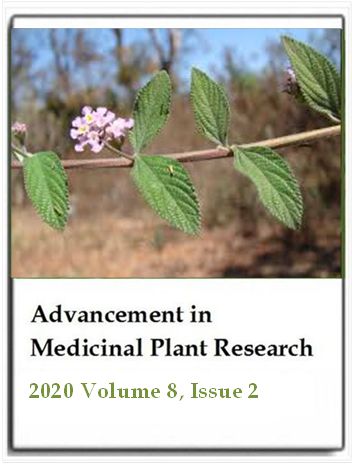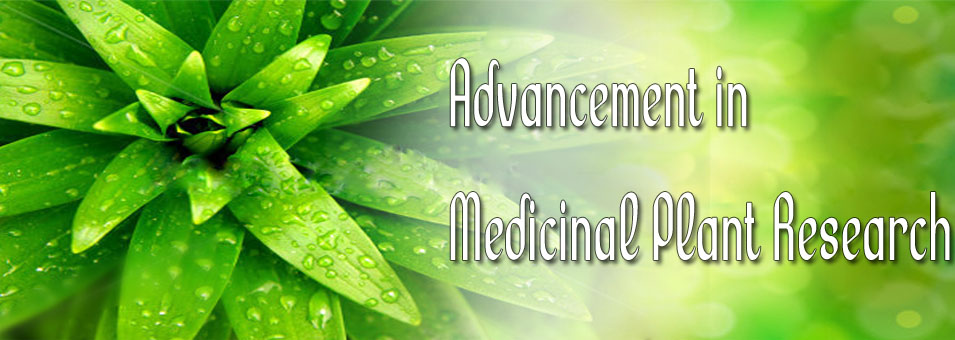Phytochemical analysis of Xylopia aethiopica (Dun), Citrus limon (L.) and Allium sativum (L.) extracts and their effect on selected human pathogens
Okigbo, R. N., Ezebo, R. O. and Okoli, S. I.Advancement in Medicinal Plant Research
Published: June 3 2020
Volume 8, Issue 2
Pages 35-42
Abstract
A study was carried out to evaluate the effects of phytochemical properties of plant extracts of Xylopia aethiopica, Citrus limon and Allium sativum on selected human pathogens. Phytochemical analysis of ethanol and chloroform of Xylopia aethiopica, Citrus limon and Allium sativum extracts showed presence of flavonoid, alkaloid, HCN, saponin, tannin and sterol. Quantitative phytochemical analysis of C. limon, X. aethiopica and A. sativum revealed C. limon has highest flavonoid (2.635 ± 0.021), sterol (0.160 ± 0.000), terpenoid (0.520 ± 0.000) and anthraquinone (2.760 ± 0.057). X. aethiopica has highest composition of hydrogen cyanide (0.835 ± 0.021) while A. sativum has highest composition of alkaloid (2.080 ± 0.000), saponin (2.080 ± 0.000) and tannin (1.040 ± 0.000). The three plants; A. sativum, C. limon and X. aethiopica showed a significant difference in their composition of all assayed phytochemicals (P < 0.05). The inhibitory effect of plant extracts against S. aureus, E. coli and Pseudomonas spp. in all concentrations had C. limon and A. sativum as the highest while X. aethiopica showed the least inhibitory activity against Aspergillus spp. and Rhizopus spp. The study proves the effectiveness of the plant extracts in the control of human pathogens.
Keywords: Phytochemical, Xylopia aethiopica, Citrus limon, Allium cepa, extracts, human, pathogens.
Full Text PDFThis article is published under the terms of the Creative Commons Attribution License 4.0

